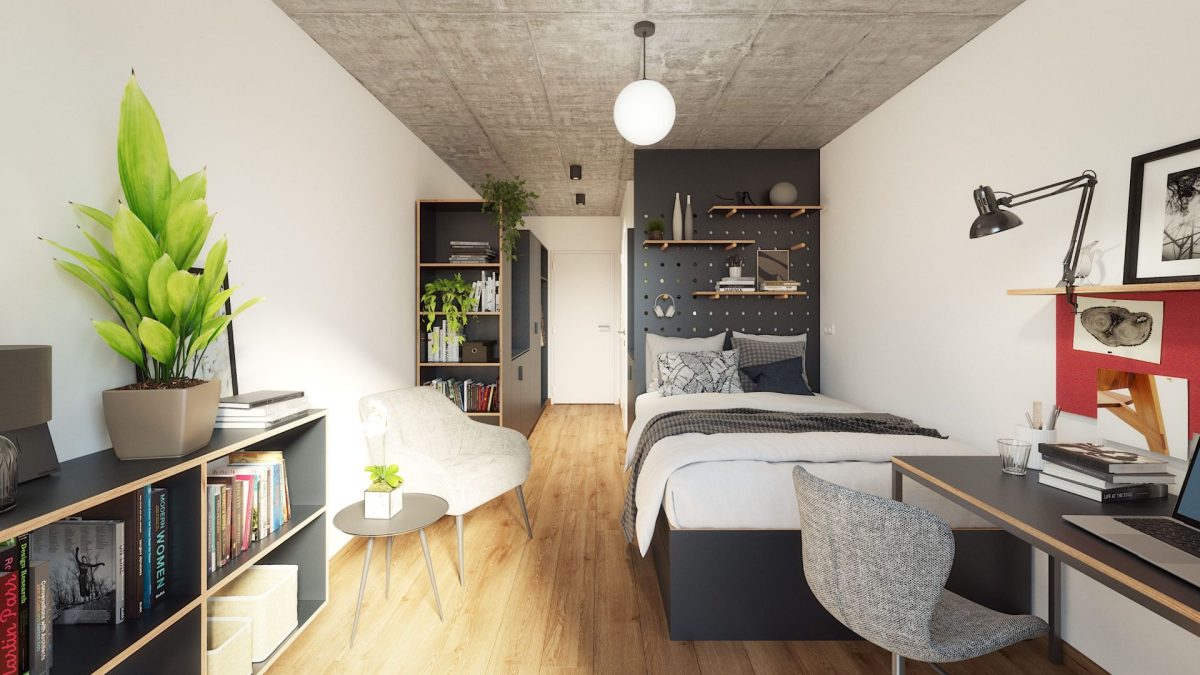For students starting university life in cities like Sydney or regional areas across Australia, the right accommodation can shape academic success, well-being, and personal growth.
Beyond affordability and proximity to campus, student-friendly living spaces cater to the specific needs of student life. They support comfort, focus, and connection.

This article explores the key traits of quality student housing and how to identify environments that enhance both study and daily living.
Thoughtfully Designed Private and Communal Spaces.
Great student accommodation balances private and communal space. Bedrooms or studios should be quiet, well-lit, and furnished with a study desk, storage, and fast internet. Natural light, good ventilation, and sound insulation help create a calm study environment.
Communal areas matter too. Shared kitchens, lounges, and courtyards offer space to socialise, relax, and build friendships. These are especially important for students living away from home or adjusting to a new culture.
Safety, Security, and Support.
A student-friendly environment prioritises safety and security, offering features like electronic access systems, CCTV coverage, and on-site management. International students, in particular, often seek the assurance that comes from knowing their living environment is monitored and secure.
But security is not just about surveillance. It is also about support. Professional management staff who are approachable, trained in pastoral care, and responsive to maintenance requests or welfare concerns contribute enormously to a supportive student experience. Mental health, cultural sensitivity, and inclusion are all increasingly recognised as integral to successful student accommodation models.
Accessibility and Location.
Location is key, not just in relation to the university but also to essential services like public transport, grocery stores, gyms, cafés, and medical centres. Being close to these amenities saves time, reduces stress, and improves daily living.
In major study cities like Sydney, purpose-built student accommodation, such as www.iglu.com.au, places students within easy reach of campuses, transport links, and vibrant urban areas. This makes student life more convenient and enjoyable.
Flexible, Transparent Lease Options.
Students often have different tenancy needs compared to full-time workers. Accommodation providers that offer flexible leasing options, such as semester-based contracts or shorter stays, are better positioned to accommodate the academic calendar and international travel schedules.
Transparency in pricing, clear terms and conditions, and no hidden costs build trust and reduce the administrative burden for students. Many are navigating lease agreements for the first time.
Digital Infrastructure and Smart Features.
Today’s students live highly digital lives. Seamless Wi-Fi connectivity, fast upload and download speeds, and reliable internet coverage throughout the building are essential, especially for those engaged in hybrid learning models or remote classes.
Smart security features, app-based maintenance reporting, and Internet of Things (IoT) integrations improve convenience and help students manage daily life more efficiently.
Wellbeing and Lifestyle Amenities.
Modern student residences increasingly recognise the value of holistic wellbeing. Facilities like gyms, yoga rooms, meditation spaces, and group fitness classes help students maintain a healthy lifestyle amidst the pressures of study. Events and activities, from movie nights to cultural celebrations, further foster belonging and emotional well-being.
Cleanliness and hygiene are also non-negotiables. Regular professional cleaning of common areas, pest control, and readily available sanitation supplies help maintain a healthy, comfortable environment.
Sustainability and Environmental Responsibility.
Sustainability is an emerging priority among students. Eco-conscious accommodations that feature recycling programmes, energy-efficient appliances, water-saving fixtures, and green building design are increasingly in demand.
Accommodation providers that demonstrate an environmental commitment, through initiatives like bike-share schemes, community gardens, or carbon offsetting, not only attract environmentally minded students but also set a valuable example of global citizenship.
More Than Just a Place to Stay.
Student accommodation should offer more than just a place to sleep. The best living spaces support learning, wellbeing, and independence. From security and location to inclusive design and digital readiness, every detail matters. As students navigate university life, well-designed housing can provide the foundation for a successful and rewarding experience.
Leave a Reply